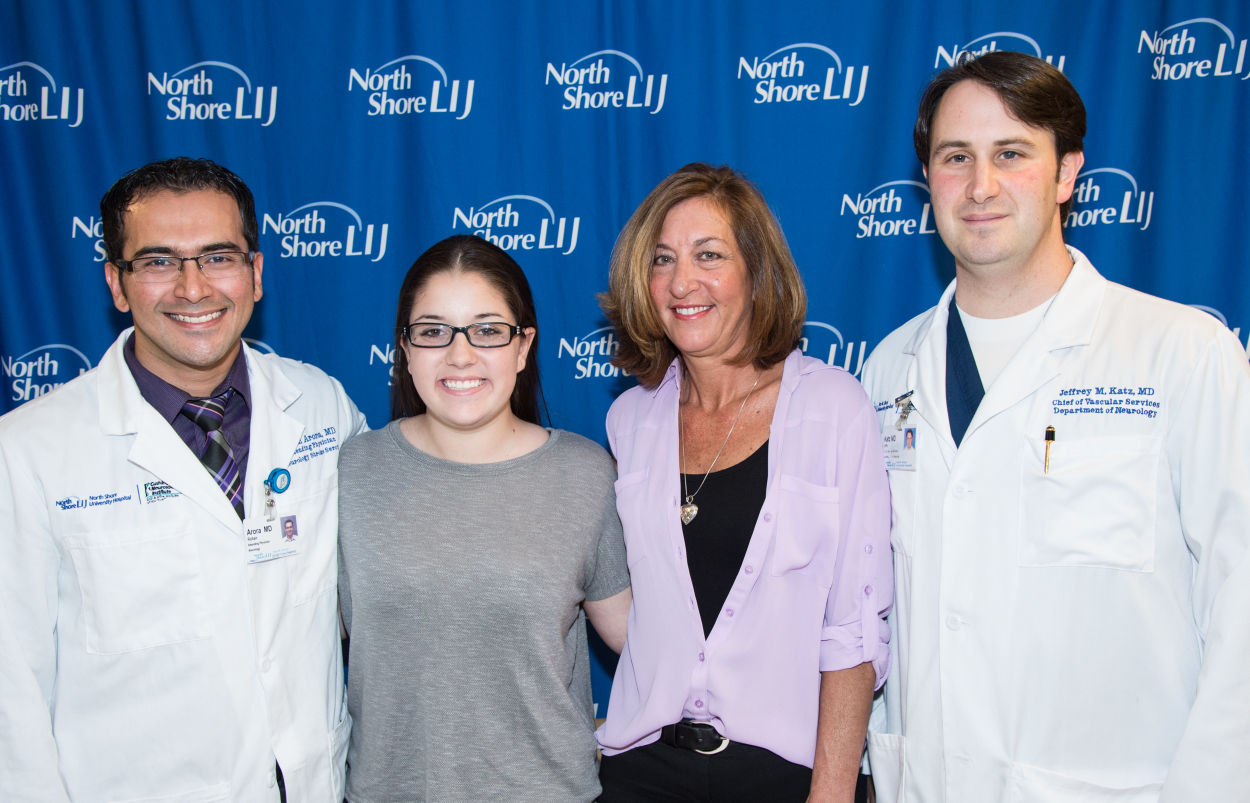At around 5:30 a.m. on April 28, Sonia Survilla stepped onto the deck of her Levittown home to smoke a cigarette.
Shortly thereafter, she said the deck began to spin and her body went numb — she was in the midst of a stroke.
“I always worked out, ate right. I tried to do the right thing,” she said Thursday. “But I had been a smoker since the age of 12.”
About 45 minutes later, her daughter Ashley awoke for school and found her mother unresponsive and foaming at the mouth.
Sonia is alive today likely because of her daughter’s quick thinking in calling 911, but also due to new video technology that allowed doctors at St. Joseph’s Hospital in Bethpage to collaborate with the North Shore-LIJ Health System to identify the stroke and offer additional treatment.
Upon Survilla’s arrival at St. Joseph’s Hospital, physicians ordered a telestroke, which allows for the video examination of stroke patients from multiple locations, often with physicians outside a hospital.
They held a video conference with Dr. Rohan Arora, a vascular neurologist with the North Shore-LIJ Health System who was doing rounds that morning at Long Island Jewish Medical Center in New Hyde Park, and found there was still enough time to administer tPA, a drug treatment meant to decrease the size of blood clots that form during a stroke.
But Arora said that during the examination, “It also became clear that the medication would not suffice and that Sonia needed to be transferred to North Shore University Hospital so she could have a procedure done to remove the large clot” that had formed in her brain, blocking a major artery.
At 10:45 a.m., a few short hours after she was rushed to the hospital, Survilla successfully went under the knife in Manhasset.
Ashley was “[my] angel,” Sonia said, adding she has since quit smoking and is taking even further precaution in leading a healthy lifestyle.
“I’m glad I was able to save my mom’s life,” Ashley said. “I didn’t want to think about not having my mom.”
Dr. Jeffrey M. Katz, the chief of neurovascular services and director of the Stroke Center at North Shore University Hospital, said Survilla’s story underscores “the importance of having state-of-the-art technology at our disposal,” adding the health system is the region’s largest provider of telestroke communications.
Said Arora: “Thanks to Ashley’s quick thinking and the use of this advanced technology, we were able to be here together today. This is a wonderful story.”



